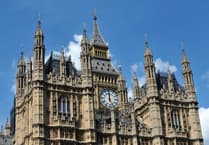Scotland's first minister, Nicola Sturgeon, has announced her resignation.
The SNP leader, 52, has been the first minister since November 2014, when she succeeded Alex Salmond following the Scottish independence referendum.
In a hastily-arranged news conference in Edinburgh this morning, Ms. Sturgeon said that while the job of the first minister was 'a privilege beyond measure', being proud to be the first female leader of Scotland, it was time to resign.
Ms Sturgeon also added that her resignation was not due to 'short term pressures'.
She said that her resignation would not be immediate and she would stay in post to allow enough time for a successor to be elected.
Sources told the BBC prior to her announcement that the First Minister "had had enough" of the role, which over eight years has seen her become the second-longest serving female leader in UK political history, after Margaret Thatcher.
The first minister had also won praise for her handling of the coronavirus pandemic in Scotland at a time when the response from the UK Government at Westminster was criticised.
Ms. Sturgeon's departure comes amid an ongoing row in Scotland about self-certification of gender.
The plans would have allowed individuals to change their legal gender through a process where no diagnosis or medical reports would have been required, with a cut to the amount of time that an individual needed to have lived in their gender to three months.
The Scottish Gender Recognition bill was later torpedoed by the UK Government, using a veto process contained within section 35 of the Scotland Act for the first time since devolution was granted to Scotland.
The proposals sparked a row between supporters of the bill and campaigners who said that allowing anyone to 'self-identify' as a woman would impact the rights women have fought for decades to secure.
Ms. Sturgeon had also faced criticism after convicted rapist, Isla Bryson, who changed her gender after her conviction of crimes committed as a male, was initially placed in a women's prison.
The resignation also comes amid an ongoing log-jam with the Scottish Independence debate, with no sign of a new referendum on the horizon. The Scottish Government recently lost a Supreme Court case to test whether they would be able to unilaterally hold an independence referendum without first getting the permission of the UK Government.




.jpg?width=209&height=140&crop=209:145,smart&quality=75)
Comments
This article has no comments yet. Be the first to leave a comment.